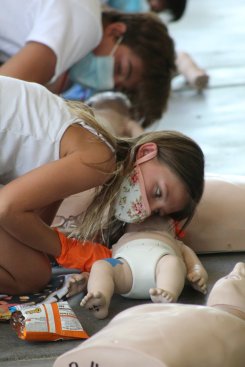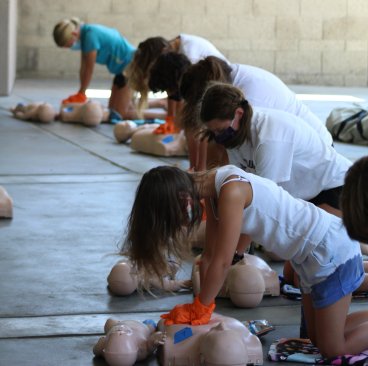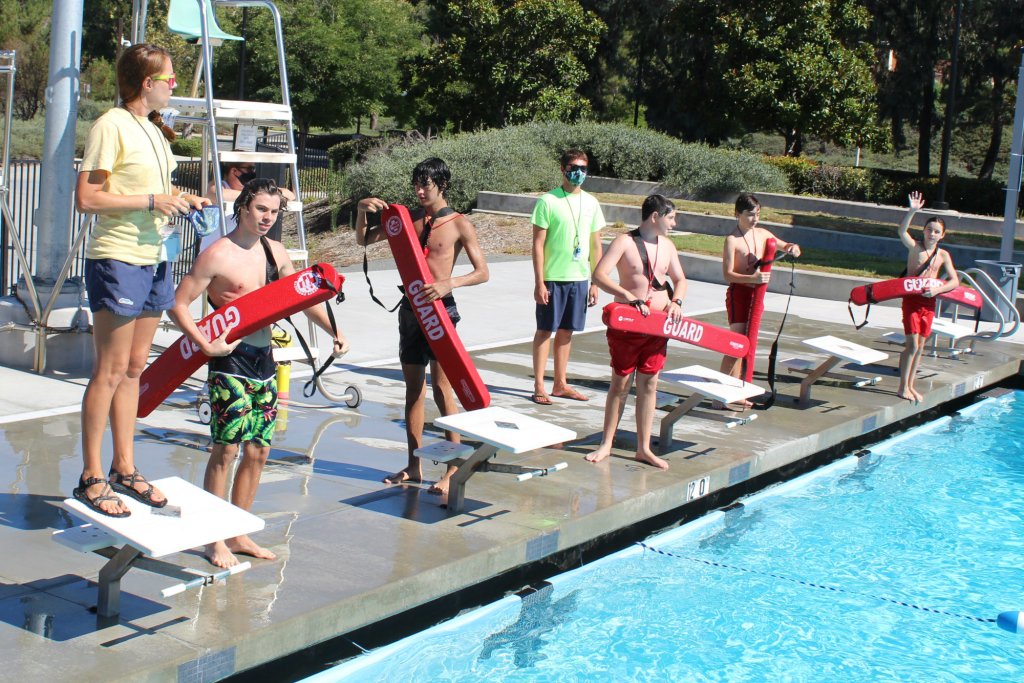The City of Temecula, Calif. was able to offer aquatics programming for part of 2020. But like virtually every other aquatics sector or facility, it had limited resources.
Having to work with a pared-down staff and significantly reduced facility capacity, the program wouldn’t be able to put its junior lifeguards on deck, where they normally would help lifeguards and swim instructors. But junior lifeguard training still ranked high on the priority list of offerings. For one thing, the team wanted to offer an opportunity to connect with like-minded teens during a time of isolation. But, at least as important, this was a way for the city to address the top concern in the aquatics community — how to queue up capable lifeguards for 2021 after missing a year of training and recruitment.
Kristen Post, senior lead guard for the City of Temecula, led the charge to convert the junior lifeguard program into something feasible during the days of COVID. She came up with a hybrid online/in-person instruction program meant to give trainees a leg up next spring, as well as to bond with their potential future coworkers.
“A lot of the participants in that program have a strong desire to help the community, and because of that desire, they tend to want to be in communities,” says Melissa Davis, aquatics supervisor II for the City of Temecula. “We felt by offering that program, we could provide that space.”

Expert hybrid
The team utilized two platforms for the virtual portion of the program. Meetings or classes themselves would take place over Zoom, while videos were viewed ahead of class via Google Classroom.
“We found that trying to play videos over Zoom would be glitchy,” Post says. “It was easier for them to watch ahead of time, then hold the in-class discussion via Zoom.”
Videos from the American Red Cross’ junior lifeguard program were used, while Post and the team created Powerpoint presentations and other materials for the classes. The team wanted social elements during the meetings to help students avoid Zoom fatigue, so each session began with a fun ice-breaker activity, such as an in-home scavenger hunt or a game of I Spy. To foster bonding and provide an avenue for shy students to participate, Zoom breakout rooms were utilized. Here, smaller groups would form on the platform to discuss a particular topic.

After the virtual portion, and once the city’s pools could open, students attended the in-person portion of training.
To the team’s encouragement, approximately 30 teenagers signed up — a good percentage of the 40-45 who participate in a normal year. Every one finished the program.
